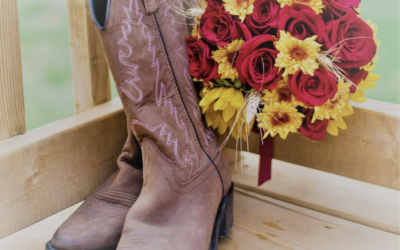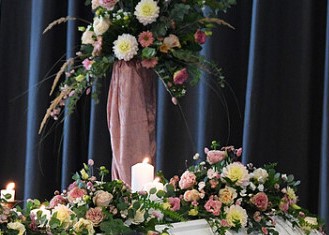Next week will be a difficult anniversary day for many people in my community. We are one county away from Las Vegas, and it is considered almost our backyard. Holiday weekends the passes are jammed as folks from our area head that way, and folks from Vegas come the opposite direction. On the weekend of the Route 91 Harvest Festival, the crowd was from all over, but there were a huge number of people from here. On that terrible last day of the festival, one I have attended on the past, the largest mass shooting in our recent history took the lives of 58 people, and more than 500 were injured.
Those numbers still seem unreal, don’t they? The injuries have caused permanent disabilities for many, and the emotional trauma for all those there, their families and friends who could not find them as they sought information, and the first responders and mortuary disaster team was devastating. Country radio staff went from playing music to consoling as they shared the news, while grieving their colleagues. There are just too many stories, all of them heart wrenching. We lost parents, children, teachers, police officers, firemen, nurses, neighbors, cousins, musicians – all of them simply out to enjoy a night of music in the warm Vegas evening. And then chaos.
How do we, as therapists, prepare to support our clients who were in any way impacted as we face next week? It’s an important question for those of us across the country with the number of mass shootings we have in this country.
- Don’t force the issue, but do not avoid it either. And be prepared for it. That day on the calendar has been staring at them and it has not been out of their mind.
- Give them permission to block postings of all the gruesome pictures. They will be everywhere next week- and survivors will feel guilty for not wanting to see them.
- If they need time off to get past this, do the paperwork for the employer. Even though you are not a physician they will often accept a therapist- just be clear about your licensure.
- Say the name of the person who died. It is important to your client that people remember their name.
- If they have a need to visit the cemetery or other memorial, encourage it. Ask if they need assistance figuring out how to mark the day there. It will be more than a normal visit for them and recognizing that for them can make a difference.
- If they do not have a plan as to how to acknowledge the day and want to, work with them on creating something that works for them. Not for everyone else. For them.
- Many grievers want to do something in their loved one’s name. They want to make them part of the future by doing so. They may be open to thinking about that now that the first year has passed.
- Allow room for survivors’ guilt and acknowledge how very real and devastating it can be. They do not need to hear that they should not feel guilty. They need to talk it out and learn to change the messages in their thought process.
- No platitudes. It is so easy to slip and say them- they are almost preprogrammed in our language around death. I’ll add here that a great way to open a conversation is to ask what they have been hearing at that time that is not
- Do not assume that, even if your client expressed having a faith in prior sessions that they are still okay with the beliefs they held the moments before the shooting. And they may have a lot of guilt they need to address about doubting their faith, guilt they cannot talk about at home or with friends because challenging beliefs would be unacceptable. Death, especially a violent senseless death, challenges one’s faith and ability to reconcile faith with those events. Grieving clients facing a peaceful death struggle with faith. Those who have spent a year imagining what their loved one went through in a dark place with bullets flying will, in all likelihood, be especially challenged.
- Do your risk assessment. Anniversaries are tougher than survivors acknowledge. Anyone with prior depression and especially attempts to self-harm should have that acknowledged and a contract to work with you and lean on their support system.
- Make sure you make a follow-up appointment before the end of session. Tell them you want to continue to provide support because of the loss of the person who died and say the name again. They have spent weeks getting ready for this anniversary. It is going to cause an increase in stress, irritability, and sadness. They will be spending a lot of time shoring up others around them who are also impacted, and people who reach out to them to support them but end up needing support themselves. You may be the one safe space to talk it all through, including anger at being put in the place of taking care of others at that time.
- Note that all of the above can be utilized with those who are injured and survived. They can be adapted to survivors who witnessed the event, in addition to traditional trauma therapy. Most survivors of mass shootings were with someone or several people they knew, so there will be grief as well as trauma as a survivor.
- First responders and mortuary staff may need to mark the day, and work through the memories. Those who were present will have many of the same emotions. They will feel less able to express it, because their role was to support, save, and care for those injured and dead, and their families. Acknowledge for them that this was not normal, and anyone associated with a mass casualty situation can develop PTSD, anxiety, and depression, and it does not mean they were not strong enough to prevent it. Nobody should ever face 58 people dying from gunshots, or towers falling, or any other situation. There is no way to prepare for that, and everyone involved will be forever changed by it.
Grief work is an amazing way to be able to help clients find healing and recovery. I hope all of us will find ourselves needing to do less with mass casualty situations, but for now we all need to be prepared. To hold that safe space. And to offer resources.




